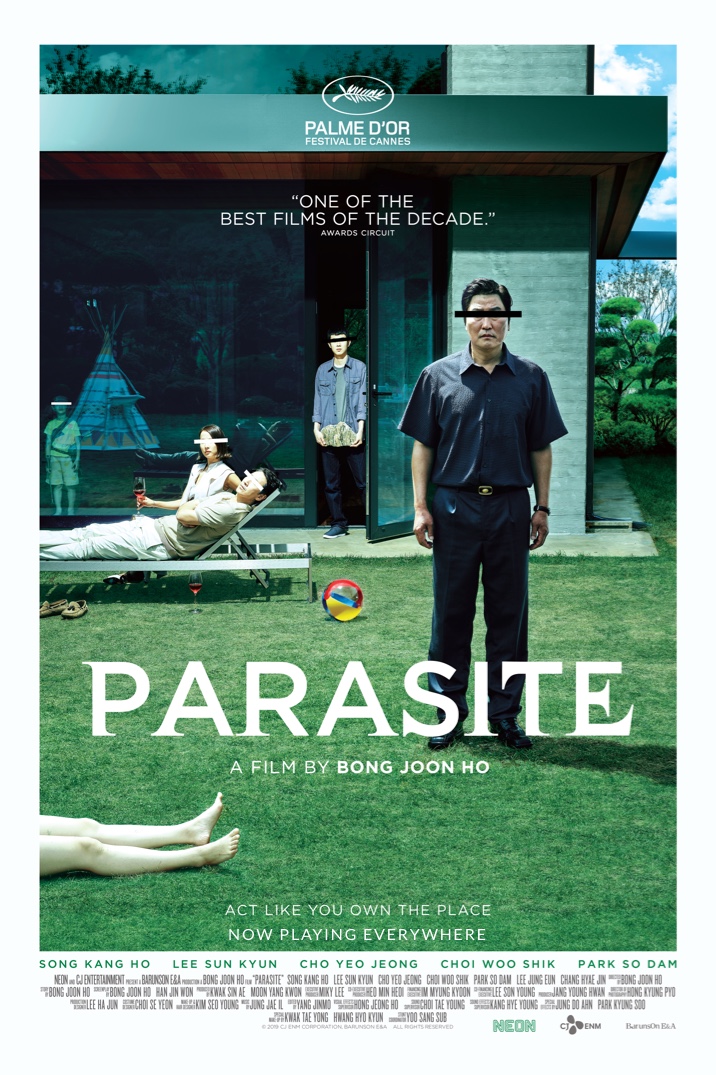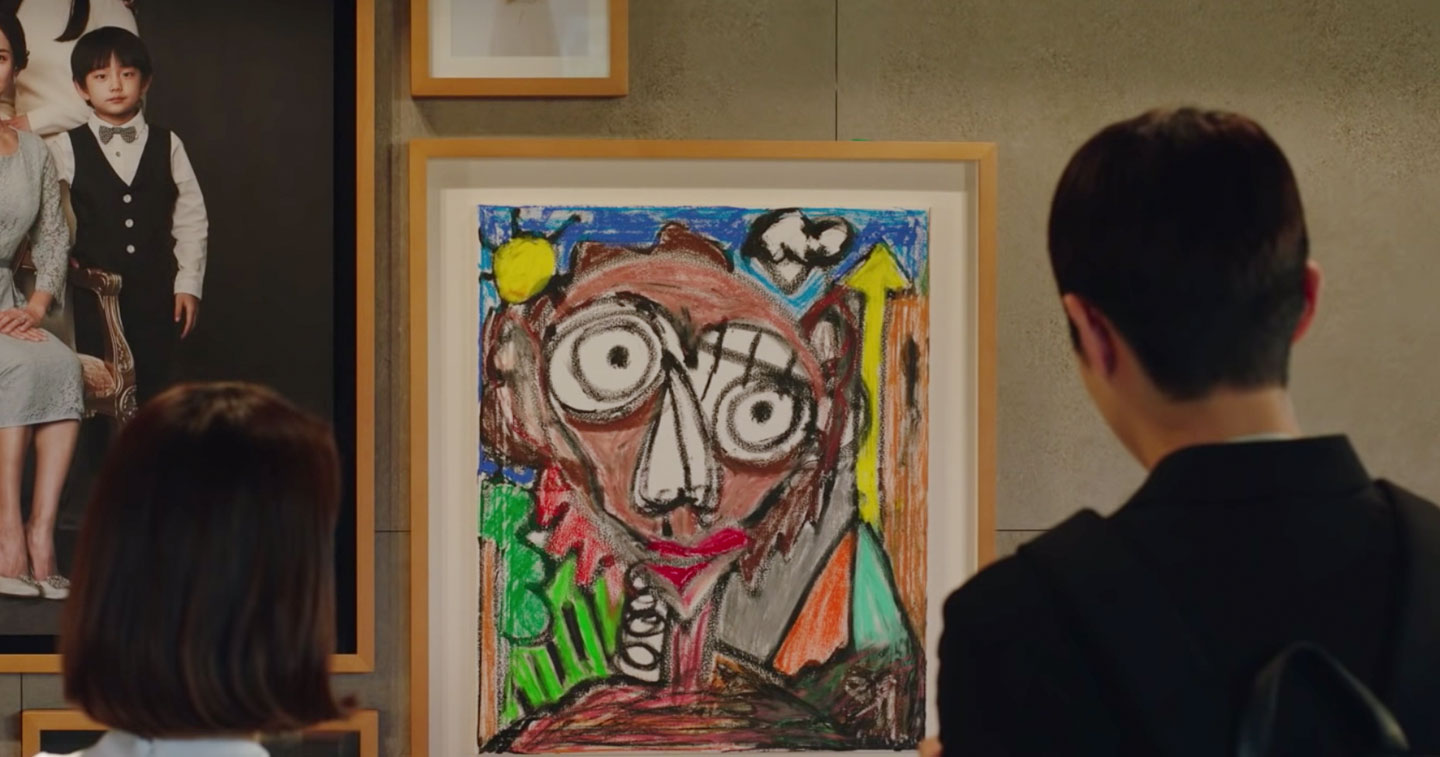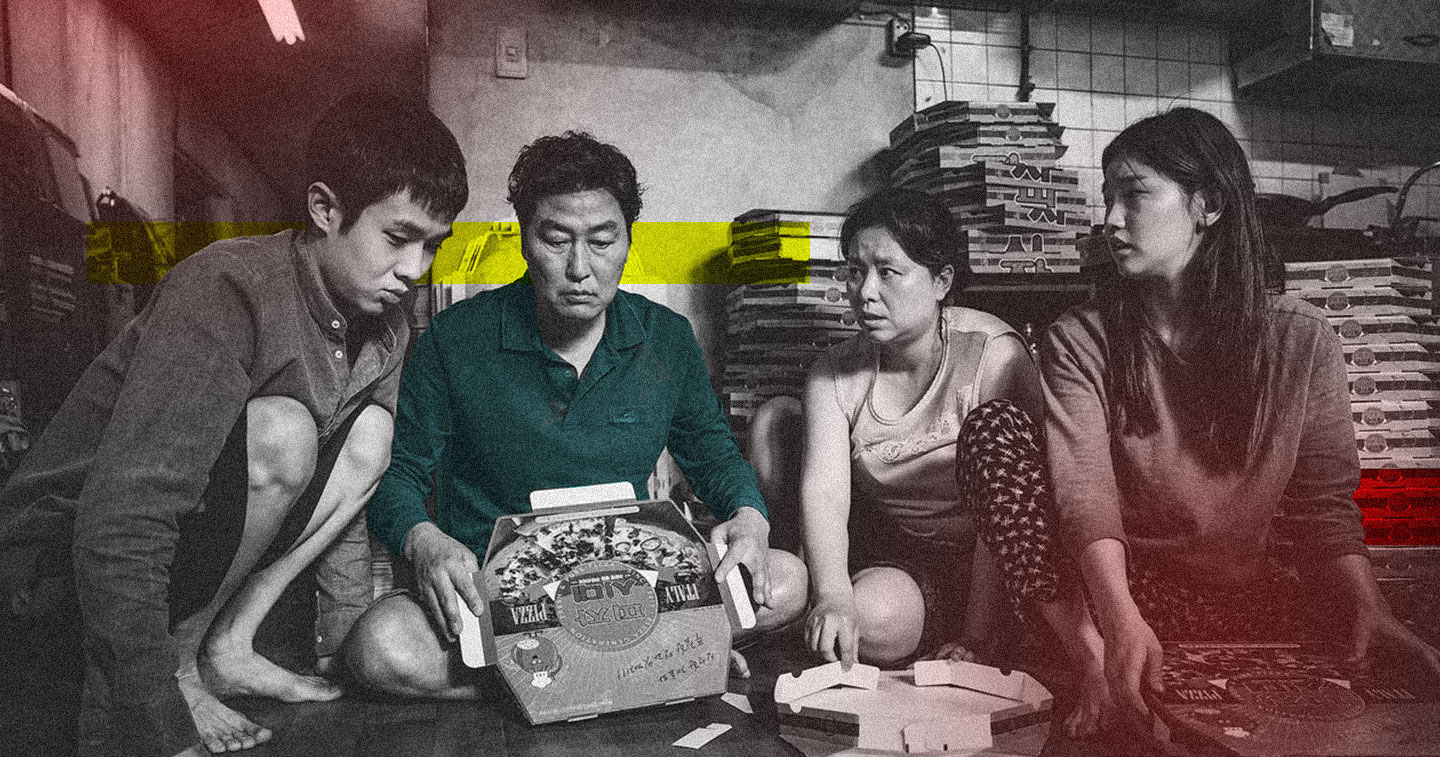MANILA, PHILIPPINES – For most Filipino moviegoers, watching a film in a cinema is a relatively easy experience as the movies they watch are usually either in English or Filipino. That means everything is understood not just via the action onscreen but also by the language spoken by the characters. Yet there are so many films that often go unnoticed because they are in a completely foreign language and require either dubbing or English subtitles to be understood. This injustice should not prevent any Filipino from watching possibly the best film in 2019, the critically acclaimed phenomenon that is Bong Joon-ho’s Parasite.

The Kim family are each working low-paying temporary jobs while living a meager existence in a semi-basement apartment in South Korea. Father Ki-taek (Song Kang-ho), mother Chung-sook (Chang Hyae-jin), son Ki-woo (Choi Woo-shik), and daughter Ki-jeong (Park So-dam) have gotten used to this lifestyle, often concocting scams and schemes to ingratiate themselves into jobs that never really last. When Ki-woo’s friend Min-hyuk (Park Seo-joon) gives him a suseok or “scholar’s rock” that will hopefully give them good luck, Min-hyuk also suggests that Ki-woo take over his job as a tutor for a wealthy family by posing as a university student.
Ki-woo easily pulls off the charade with Park Dong-ik (Lee Sun-kyun) and the rest of the Parks. Ki-jeong then manages to scam her way into being young Da-song’s (Jung Hyeon-jun) art teacher and the siblings get Ki-taek the job of the family driver and Chung-sook takes over as housekeeper through less than honest means. While the Parks leave for a camping trip, the four Kims revel in the luxury of the mansion. Shockingly, the disgraced former housekeeper Gook Moon-gwang (Park Myung-hoon) makes a return to the household because she’s been keeping a secret in the basement. This leads to a series of events that changes the Kims in ways they didn’t see coming.


Though the film begins as somewhat of a comedy with the Kims methodically inserting themselves into the Park mansion and taking advantage of the gullibility of Park Yeon-gyo (Cho Yeo-jeong) and her husband as well as the libido of Park Da-hye (Jeong Ji-so), it slowly becomes a social commentary on the inequality of the upper and lower classes in South Korea. The Kims barely getting by on their scams is a stark contrast to the Parks seemingly not knowing what to do with all the cash they have and Bong thus makes the Kims, faults and all, sympathetic figures.
When Ki-taek overhears the Parks talking about his smell in the car because of where they live, it resonates so deeply in the former that it drives him to commit something so unthinkable at the end of the film. The sewage water that floods their apartment during the monsoon also proceeds to wash away what semblance of a life the Kims have on their own as they end up at a gym with other flood victims.
The birthday party that the Parks throw for Da-song swiftly devolves from an ostentatious celebration into a tragic bloodbath that is almost funny in its over-the-top deliciousness. It is only in the party’s aftermath, when the fates of those involved are revealed, that an air of sadness and heartbreak emerges. All of the scamming, lying, and scheming is all for naught as Ki-woo can only dream about one day reuniting what remains of his family.


From an original screenplay by Bong Joon-ho and his production assistant on Snowpiercer, Han Jin-won, Parasite is a film that nobody expected would dominate award shows and film festivals worldwide. The film’s poster looks creepy with the eyes of the Kim family blocked out even as they pose outside the Park’s mansion while a pair of legs are ominously lying on the lower left of the image. With that poster, and because it’s a film from South Korea and recent Korean films that have gained prominence have been of the horror genre, it would be easy for many to expect that Parasite would fall along those same lines. Instead, it is something completely different.
The accolades have been raining down on Parasite almost from the moment it premiered at the Cannes Film Festival in May 2019, winning the coveted Palm d’Or there. Among the awards it has reaped are the Golden Globe for Best Foreign Language Film, the Critics’ Choice Movie Award for Best Foreign Language Film, and the Screen Actors Guild Award for Outstanding Performance by a Cast in a Motion Picture (which saw Hollywood luminaries give the cast a standing ovation). Parasite has also been nominated for Best Film, Best Director, Best Original Screenplay, and Best Film Not in the English Language at the 73rd British Academy Film Awards while being nominated for Best Picture, Best Director, Best Original Screenplay, and Best International Feature Film at the coming 92nd Academy Awards. In most, if not all these instances, Parasite is the first film from South Korea to achieve these honors, an amazing feat in celebrating 100 years of Korean cinema.
So popular has Parasite become that Bong Joon-ho and Adam McKay are in the early stages of developing a limited series based on the film for HBO. Bong has already stated that this series will explore stories “that happen in between the sequences in the film.” Already entering the American market with 2013’s Snowpiercer and 2017’s Okja, Bong has reached even greater heights, unprecedented for a Korean filmmaker.
During his acceptance speech at the Golden Globes, Bong said that, “Once you overcome the one-inch-tall barrier of subtitles, you will be introduced to so many more amazing films.” Indeed, it is a sentiment that many non-English speaking filmmaking countries believe, and hopefully, the Parasite phenomenon can lead to more non-English language films getting global exposure for just being excellent motion pictures despite the perceived “language barrier” that subtitles might otherwise provide.
About the Author:

Jason Inocencio was once the Digital Editor of adobo magazine who still loves seeing great campaigns from all over the world. He proudly shows off his love for all kinds of geeky things, whether it be movies, TV shows, comics, sports, or trivia.







